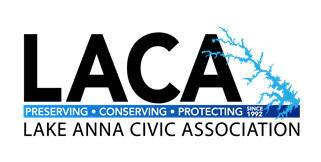By Al Bennett - February 2021
Just a reminder to all Lake Anna residents that the annual 4:00 p.m. Virginia Burning Law goes into effect on February 15 and extends through April 30. 
This law dates back to the 1940s and was adopted to reduce the number of fires which normally occur in the late fall and spring. During this period of the year, the accumulation of downed trees, fallen branches, and dead leaves coupled with low humidity and increased winds elevates the danger for forest fires.
The Virginia Department of Forestry established 4:00 p.m. as the earliest time of day to initiate a burn because in the late afternoon, wind and humidity environmental factors are typically more favorable for a safe burn. At this time of day, winds calm down and humidity begins to rise.
The below Burning Laws in Brief and Burning Laws in Detail were extracted from a Virginia Department of Forestry brochure. The brochure can be found at https://www.dof.virginia.gov/infopubs/Outdoor-Fire-Laws_pub.pdf.
Burning Laws in Brief
- No burning until after 4:00 p.m. February 15 through April 30 of each year, if the fire is in or within 300 feet of woodland, brushland or field containing dry grass or other flammable material.
- Fire shall not be left unattended if within 150 feet of woodland, brushland or fields containing dry grass.
- No new fires set or fuel added after midnight.
- Law applies to campfires, warming fires, brush piles, leaves, household trash, stumps, fields of broomstraw and brush or anything capable of spreading fire.
- The law provides for a penalty of up to $500, plus payment of court costs and fire suppression costs if the fire escapes.
Burning Laws in Detail
§ 10.1-1142. Regulating the burning of woods, brush, etc.; penalties.
A. It shall be unlawful for any owner or lessee of land to set fire to, or to procure another to set fire to, any woods, brush, logs, leaves, grass, debris, or other inflammable material upon such land unless he previously has taken all reasonable care and precaution, by having cut and piled the same or carefully cleared around the same, to prevent the spread of such fire to lands other than those owned or leased by him. It shall also be unlawful for any employee of any such owner or lessee of land to set fire to or to procure another to set fire to any woods, brush, logs, leaves, grass, debris, or other inflammable material, upon such land unless he has taken similar precautions to prevent the spread of such fire to any other land.
B. Except as provided in subsection C, during the period February 15 through April 30 of each year, even though the precautions required by the foregoing subsection have been taken, it shall be unlawful, in any county or city or portion thereof organized for forest fire control under the direction of the State Forester, for any person to set fire to, or to procure another to set fire to, any brush, leaves, grass, debris or field containing dry grass or other inflammable material capable of spreading fire, located in or within 300 feet of any woodland, brushland, or field containing dry grass or other inflammable material, except between the hours of 4:00 p.m. and 12:00 midnight.
The provisions of this subsection shall not apply to any fires which may be set to prevent damage to orchards or vineyards by frost or freezing temperatures or be set on federal lands.
C. Subsection B shall not apply to any fire set during the period beginning February 15 through April 30 of each year, if:
1. The fire is set for "prescribed burning" that is conducted in accordance with a "prescription" and managed by a "certified prescribed burn manager" as those terms are defined in § 10.1-1150.1;
2. The burn is conducted in accordance with § 10.1-1150.4;
3. The State Forester has, prior to February 1, approved the prescription for the burn; and
4. The burn is being conducted for one of the following purposes: (i) control of exotic and invasive plant species that cannot be accomplished at other times of the year, (ii) wildlife habitat establishment and maintenance that cannot be accomplished at other times of the year or, (iii) management necessary for natural heritage resources.
The State Forester may on the day of any burn planned to be conducted pursuant to this subsection revoke his approval of the prescription for the burn if hazardous fire conditions exist. The State Forester may revoke the certification of any certified prescribed burn manager who violates any provision of this subsection.
D. Any person who builds a fire in the open air, or uses a fire built by another in the open air, within 150 feet of any woodland, brushland or field containing dry grass or other inflammable material, shall totally extinguish the fire before leaving the area and shall not leave the fire unattended.
E. Any person violating any provisions of this section shall be guilty of a Class 3 misdemeanor for each separate offense. If any forest fire originates as a result of the violation by any person of any provision of this section, such person shall, in addition to the above penalty, be liable to the Commonwealth for the full amount of all expenses incurred by the Commonwealth in suppressing such fire. Such amounts shall be recoverable by action brought by the State Forester in the name of the Commonwealth on behalf of the Commonwealth and credited to the Forestry Operations Fund.
